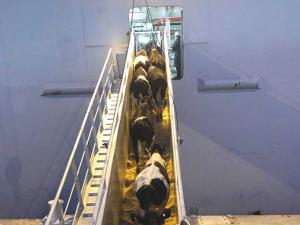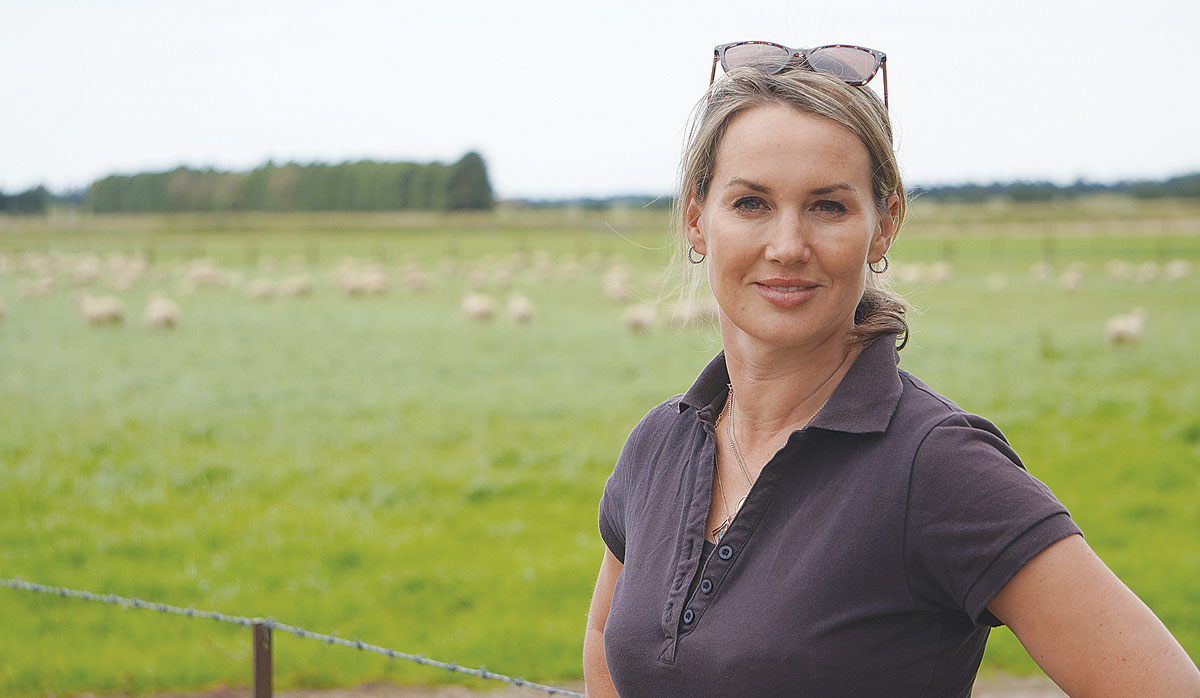ACC backs young farmers with FMG Young Farmer of the Year partnership
The Government has announced that ACC will be a sponsor of this year's FMG Young Farmer of the Year competition.
 Nicola Grigg believes that NZ has been robbed of an opportunity to shape welfare standards in the global trade of live animals with the passing of new legislation banning live cattle exports.
Nicola Grigg believes that NZ has been robbed of an opportunity to shape welfare standards in the global trade of live animals with the passing of new legislation banning live cattle exports.
OPINION: New Zealand has been robbed of an opportunity to shape welfare standards in the global trade of live animals, with the upcoming passage of a law that will end exports from this country as of April next year.
Once again, we have before us another example of a government that prefers a cancel culture, rather than a constructive culture.
This ban came about on the back of the sinking of the Gulf Livestock 1 in 2019, in which two New Zealanders died.
That was a tragedy, and I do acknowledge those families involved. But the livestock trade will continue whether or not New Zealand is part of it. Now, unfortunately, other countries with less rigorous animal welfare standards will make up for the gap in the market as New Zealand withdraws.
I for one would prefer to see cattle leaving for China from New Zealand on ships of the highest specifications spending three weeks on the water, rather than on a refurbished container ship from Latin America, where they will spend up to two months.
The economic impact of this decision cannot be overlooked – or underestimated. An Infometrics economic impact report says it will reduce New Zealand’s GDP by $472 million a year and will cost breeders between $49,000 and $116,000 per farm per year.
But as New Zealanders grapple with the cost of living crisis that this Government has created, it would seem it would still prefer to ban an industry worth almost half a billion dollars, rather than work with it to improve it.
The Government did not carry out its own economic analysis, nor would it consider any of the proposed amendments the National Party put forward.
To be clear, I have always acknowledged that substandard practices have occurred in this industry – which I, like most New Zealanders, absolutely condemn and would not tolerate further.
However, here we have missed an opportunity to set in law regulations that would have ensured the safe and humane treatment of animals on ships.
Much has been made by advocates of the sector of the need to implement a ‘gold standard’ which has, unfortunately, consistently been dismissed by Minister Damien O’Connor.
In my view, this is both short-sighted, and ignorant – because within a gold standard lies the solution to this problem.
Developed in 2020, the Gold Standard is a 12-point regulation framework to improve and modernise the export system.
If adopted, these improvements would go further than the additional requirements introduced by MPI in October 2020, and exceed current international best practice.
The Gold Standard is a global-best practice system that is performance- based, with all potential exporters licenced by MPI. At its heart is the assurance of the good physical and mental health in animals, including freedom from stress and good nutrition.
New Zealand’s current exports require high animal welfare standards, but these are not enshrined in legislation. Surely, a far better solution for all involved – least of all the cattle we seek to better protect – is to legislate for strict statutory criteria?
 |
|---|
|
Nicola Grigg is the National Party spokesperson on animal welfare and associate spokesperson for agriculture. |
That would include things like built-forpurpose ships with stateof- the-art feed, water and air conditioning systems, as well as maximum stocking densities, vet and stock handler training, more robust reporting, exporter licensing and an importer quality assurance programme.
The National Party has consistently proposed amendments for the Government to consider – everything from licensing mechanisms and exporter/importer certification mechanisms.
Most importantly, we suggested a clause where a future government could instruct the Director-General of MPI to carry out a review on whether standards could be applied that would ensure the physical, health, and behavioural needs of the animals are met on board vessels.
Once regulations are made, exporters would be permitted to apply to the Director-General (of MPI), and he would be able to approve the export of live cattle on a case-by-case basis.
If National can form a government next year, we will commit to this review.
Nicola Grigg is the National Party spokesperson on animal welfare and associate spokesperson for agriculture.
Fonterra’s impending exit from the Australian dairy industry is a major event but the story doesn’t change too much for farmers.
Expect greater collaboration between Massey University’s school of Agriculture and Environment and Ireland’s leading agriculture university, the University College of Dublin (UCD), in the future.
A partnership between Torere Macadamias Ltd and the Riddet Institute aims to unlock value from macadamia nuts while growing the next generation of Māori agribusiness researchers.
A new partnership between Dairy Women’s Network (DWN) and NZAgbiz aims to make evidence-based calf rearing practices accessible to all farm teams.
Despite some trying circumstances recently, the cherry season looks set to emerge on top of things.
Changed logos on shirts otherwise it will be business as usual when Fonterra’s consumer and related businesses are expected to change hands next month.

OPINION: Here w go: the election date is set for November 7 and the politicians are out of the gate…
OPINION: ECan data was released a few days ago showing Canterbury farmers have made “giant strides on environmental performance”.